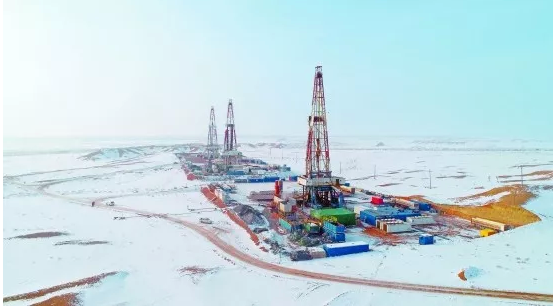
Recently, the Second Session of the 13th National People's Congress voted to adopt a resolution on the implementation of the National Economic and Social Development Plan for 2018 and the National Economic and Social Development Plan of 2019, and approve the 2019 National Economic and Social Development Plan. This plan, which was submitted to the National People's Congress for review by the National Development and Reform Commission, mentioned that this year, “the restrictions on access to oil and gas exploration and exploitation will be liberalized, and social capital will be actively attracted to increase oil and gas exploration and exploitationâ€. This is another measure to further reduce the upstream entry threshold after the country issued the oil and gas system reforms in 2017.
In recent years, the reform of the upstream oil and gas system has been accelerated.
In June 2014, General Secretary Xi Jinping proposed to promote the energy production and consumption revolution, promote the energy system revolution, and build an effective competitive market structure and market system.
In May 2017, the State issued the “Several Opinions on Deepening the Reform of the Oil and Gas Systemâ€, stating that “the improvement and orderly release of the oil and gas exploration and mining system, and the improvement of the resource support capability. The participation of market participants who meet the entry requirements and obtain qualifications is allowed. Conventional oil and gas exploration and mining."
Two years ago, "allowing the participation of market participants that meet the requirements for entry" to today "opening access restrictions and actively attracting", the changes in expression reflect the further deepening of the reform of the upstream oil and gas system. The liberalization of upstream access will be an important turning point in the development of the domestic oil and gas industry. The new pattern of competition among state-owned enterprises, private enterprises and foreign companies in the oil and gas industry chain is expected to gradually take shape. State-owned enterprises that have dominated upstream exploration and development for a long time will also face new challenges and opportunities.
Behind the speeding up of the upstream oil and gas system reform is the background to ensure national energy security. Since the "11th Five-Year Plan", China's crude oil output growth has begun to slow down, with an average annual growth rate from 2.49% during the "Eleventh Five-Year Plan" period to 1.32% during the "Twelfth Five-Year Plan" period, entering the "13th Five-Year Plan", an increase in the number It is turned from negative to negative. In 2018, China's external dependence on crude oil and natural gas exceeded 70% and 40% respectively, and ensuring energy security is extremely urgent. The need to increase domestic exploration and development efforts and ensure national energy security has made the reform of the upstream system more urgent. Cha Quanheng, an expert at China Petroleum Consulting Center, pointed out that upstream business has the characteristics of high risk, high technology, high investment and long cycle. Therefore, more investment entities and more different work ideas can expand the scale of practice, share risks, improve effectiveness, and achieve the effect of “all people collecting firewood highâ€.
At the same time, the acceleration of oil and gas reform in 2019 has basically become a national and industry consensus. Last year, from refining and sales to sales, from oil and gas production to storage and transportation, the pace of expansion and opening up of the entire industrial chain of the oil and gas industry increased. This year's government work report pointed out that it is necessary to continue to deepen reforms in key areas such as oil and gas. Xiao Yaqing, director of the State-owned Assets Supervision and Administration Commission and deputy secretary of the party committee, pointed out that the oil and gas pipeline network will be separated as an opportunity to further deepen the reform of the oil and gas system. Before the two sessions, the Party Secretary and Director of the National Energy Administration Zhang Jianhua also revealed in an interview with People's Daily that this year the National Energy Administration will actively promote the reform of the oil and gas exploration and development management system.
From the upstream access release to attracting various market players to participate in the upstream, there is still a lot of work to be done in the middle. Cha Quanheng believes that in order to form a situation in which all kinds of large, medium and small companies are in full bloom, the state must treat the same people equally, improve the licensing and exit system, and achieve resource openness, data sharing, effective input, technical guidance, and effective supervision.
Zhang Hujun, deputy director of the Oil and Gas Development Strategic Planning Institute of the China Petroleum Exploration and Development Research Institute, pointed out that oil and gas exploration and development is a capital-intensive, technology-intensive industry. Access to the private enterprises that want to participate is an opportunity and a test. The oil and gas exploration and development cycle is long, and it is necessary to have the patience of “long-term lineâ€. It is unlikely that there will be benefits in the short-term after investment.
Faced with the new changes brought about by the reform, some representatives from state-owned enterprises also said that they will adapt to the direction of national market reform and actively embrace new industry changes. Zhang Hujun believes that in the face of changes in the market structure in the future, the three major oil companies should work in technological innovation, management innovation, and institutional mechanism innovation to reduce costs and increase efficiency, and improve profitability and risk resistance.
GUANGZHOU AIJINGSI TRADING LIMITED , https://www.aichugashob.com